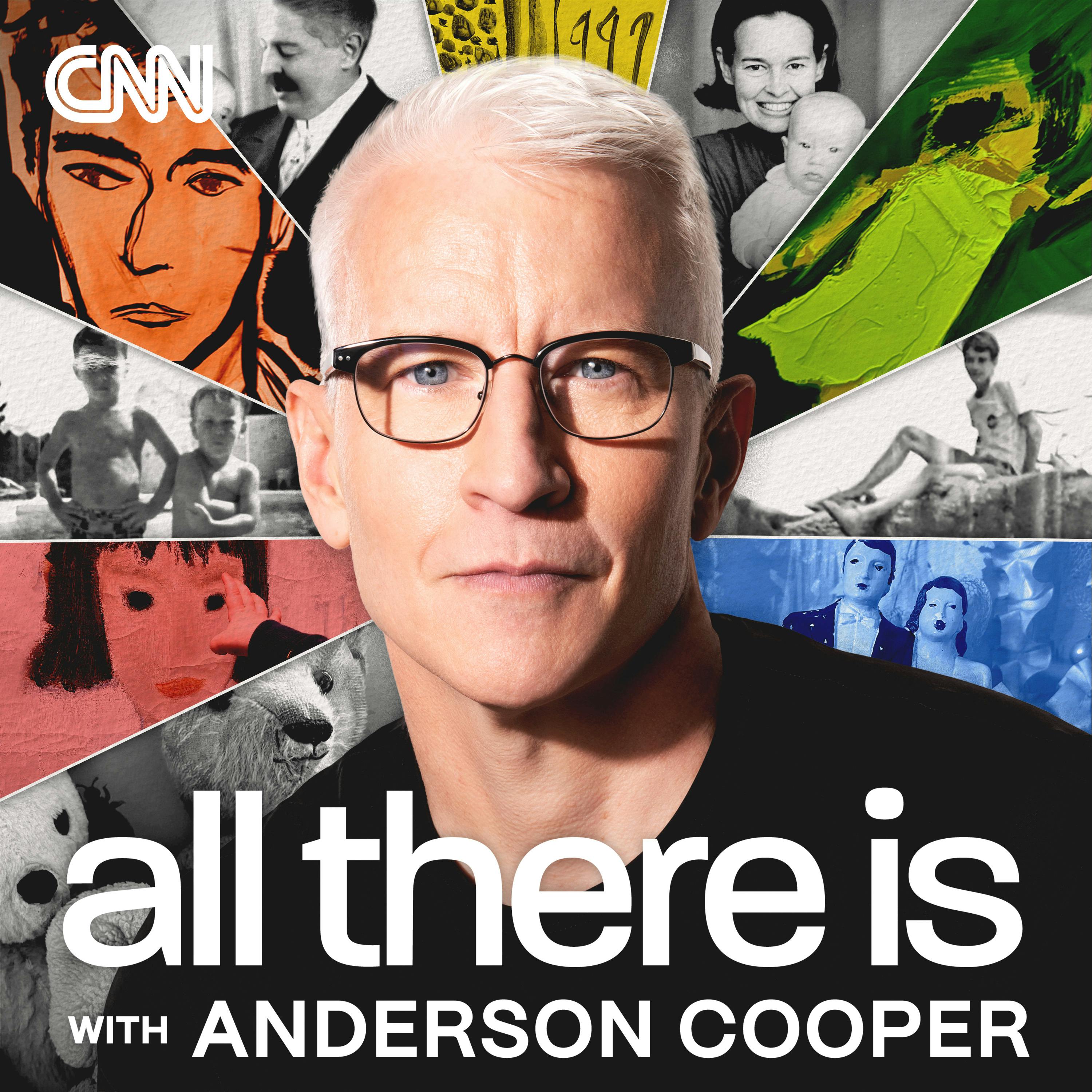
SOLACE: Soul + Grief
This podcast is sponsored by SOULPLUSGRACE serving the San José area, offering grief support and grief journeying with spirituality. I hope to help you travel through grief with God at your side.
"I am a trained Spiritual Director for those who seek to complete the 19th Annotation of St. Igantius’ spiritual exercises OR seek spiritual direction while grieving. I have also worked as a hospital/cemetery chaplain and grief doula. I believe all paths lead to God and that all traditions are due respect and honour. I take my sacred inspiration from all of my patients and companions–past, present and future; the Dalai Lama, James Tissot, St. John of the Cross, the Buddha, Saint Teresa of Ávila, and, of course, Íñigo who became known as St. Ignatius. I utilize art, poetry, music, aromatherapy, yoga, lectio divina, prayer and meditation in my self-work and work with others. I believe in creating a sacred space for listening; even in the most incongruous of surroundings."
BACKGROUND
- Jesuit Retreat Center, Los Altos, CA -- Pierre Favre Program, 3 year training to give the Spiritual Exercises of Saint Ignatius
- Centro de Espiritualidad de Loyola, Spain -- The Spiritual Exercises of St Ignatius of Loyola -- 30 Day Silent Retreat/
- Center for Loss & Life Transition – Comprehensive Bereavement Skills Training (30 hrs) Ft. Collins, CO
- California State University Institute for Palliative Care--Palliative Care Chaplaincy Specialty Cert. (90 hrs)
- Sequoia Hospital, Redwood City, CA -- Clinical Pastoral Education
- 19th Annotation with Fumiaki Tosu, San Jose, CA, Spiritual Exercises of St. Ignatius
- Santa Clara University, Santa Clara, CA M.A. – Pastoral Ministries
CONTACT ME: candeelucas@soulplusgrace.com with questions to be answered in future episodes.
SOLACE: Soul + Grief
Wholeness in a Fractured World: Greg Boyle's Wisdom - WITH TERRY JELLEY
EXPLORE with us profound ideas about brokenness and healing through Father Greg Boyle's wisdom, offering insights for anyone navigating loss or feeling disconnected in today's divisive world.
• Explore how the image reflects how God welcomes us with enthusiastic love
• Uncover the universal feeling of brokenness that accompanies grief and loss
• Examineour collective societal brokenness and division in current times
• Reflecting on Father Greg's philosophy that "no one is healed until everyone is healed"
• Learning how recognizing the inherent worth in others can transform both them and ourselves
Feel free to send any questions you might have about grieving to my email.
As you listen, consider sending me your thoughts and questions on grief, both spiritual and practical, so we can walk this path together.
SPIRITUAL DIRECTION WHILE GRIEVING IS AVAILABLE FREE OF CHARGE
You can reach us at: candeelucas@soulplusgrace.com to arrange personal spiritual direction and for questions and concerns.
Music and sound effects today by: via Pixabay
I welcome you to Solace: Soul + Grief. My name's Candee Lucas and I'm a grief chaplain. I accompany those who are grieving any kind of loss and I ask that you let me accompany you today. You're always welcome in this circle of healing, love and support. Remember, we are all on this journey together. I want you to start with that story about Greg Boyle, his mom dying, because that's such a good story.
TERRY:Okay, my favorite story about Father Greg Boyle. I've been to many of his retreats. I've worked at many of his retreats. I've seen him at LA Congress a number of times. But one year I was fortunate to go down to LA Congress when he had a very different kind of talk. Usually he talks about homeboys and he relates stories about people that are there, but this time he had just lost his mother.
TERRY:So I go in to packed auditorium and he started talking about his mother just passing away and he said the best thing was she lived very close by and when he would go to see her in her last few months, the minute he would walk into the room she would spread her arms up in a V up towards the sky and say you're here, you're here and she'd be so excited to see him. And he told a lot of interesting stories about. You know she was. She was really excited actually about this new journey, about dying. She said you know I've never done this before, about this new journey about dying. She said you know, I've never done this before. And then another time he went over there and she was very, she was asleep and he was sitting at the end of the bed and she woke up and she goes oh damn, I'm still here. So she, you know, she was totally at peace with the end of her life, and the Greek boil talked about this.
TERRY:And the thing that was so striking to me was that I had just lost my mother, just a few months before, and the last time I saw her and I live on the West coast and she's in Columbus we finally had to move her to an assisted living and she was sitting up in a chair. I had planned on going back there in just a week and she raised her arms up in that same V to give me a big hug and to look at me and said when are you coming back? And I said I'll be back in less than a week and she actually unfortunately passed away before I was able to get back, but that she made that same movement that Greg made. And it was just so amazing to think that we kind of shared this, that we both had these memories of our mothers.
TERRY:But what Greg said towards the end of his talk that really struck me was it was all about you know, raising your arms and you're here, you're here. And he said you know, that's what I think God is doing up in heaven. He's just waiting up there and when we turn to him or go to him or call upon him, he raises his arms and just looks at us and says you're here, and he's so excited. And he said all that God wants us to do is to do that same thing for another person, to just be excited, to greet them, to raise our arms and be excited and say you're here. And that just I mean I was just in tears throughout that whole talk. It was the most moving thing I had ever heard. It was awesome. It was really awesome.
CANDEE:I think maybe you did talk a little bit about that when we talked about your mom passing. I wanted to bring up Father Greg because we were all talking before we went on air about his new book called "Cherished Belonging. Cherished Belonging, I don't know. You've listened to a little bit, so I really like and I'm only about two chapters in, so I will start with what I was just hearing about.
CANDEE:When he's talking about the brokenness of everyone, about how in a speech or something, somebody referred to somebody as a good Jesuit and that so offends him because if there's a good Jesuit there's a bad Jesuit, and how we are all whole and all in this swimming in the ocean of God. I think that's another one of those things he used. So I kind of wanted to talk about that brokenness part, because it's both general and specific to grieving and I think one of the things that grievers describe and they describe it differently but this sense of brokenness. Grievers describe and they describe it differently. But this sense of brokenness, this sense of being separated from their, not only the loved ones, but being separated from the life that was then and that it all feels broken and that you can't get it back together. And we've all seen in our spiritual direction, in our own formation, in the talks we've had with each other, that that brokenness is such a theme in everybody's life, even though it may be not taught. It's not. Yes, I can function, I can go to my job, I can take care of my kids, I can get groceries, but at night when the lights go out I feel like, you know, I'm going to fall off the end of the earth. So everybody kind of identifies that with that, that brokenness. And so that's what I want to talk about today, and how that kind of both informs our grief journeys and how we kind of get people to see that wholeness and bask in that wholeness and the healing.
CANDEE:I had a directee recently that was very upset because she had a Christian friend who said she shouldn't do centering prayer because that would bring in Satan. I'm sure this woman seriously believes it, but I was trying to explain to her that in Zen Buddhism, that meditation of trying to make a nothingness, meditate so that there's nothing, is a different, different task than the way we meditate for prayer. You know, we are breathing with God and our heart is opening with God and it's very different. And I said, just tell her meditation is kind of a shorthand, it's not really very descriptive, and tell her we're doing centering prayer, because that's really what it is and it's just making a quiet space for God. So what do you think about that concept of both the brokenness and the healing? Talk about that. Start anywhere.
TERRY:I just think there's so much brokenness, not even within the individual, but within our world today, and especially, I don't know, somehow it seems like it. I don't know if it started way back at 9-11 or if it certainly started during COVID, and it just seems like it has just sped up and everything feels to me like it's just out of control anymore and really no matter. Well, what political side you're on one side makes the other side feel like they're completely broken and everything that they do is completely wrong. And I think now, with this new administration coming in and undoing and changing everything, you feel like, well, were we really that broken before? Was everything that wrong that we have to throw everything out? It's just, it's very disconcerting. You feel like the ground underneath you is just like quicksand. You know it's really, really hard.
CANDEE:I think it's like big grief, BIG grief that a lot of us are experiencing simultaneously. It's like I don't know who to feel worse for the people that are getting laid off by an email. My sister's working in the national parks right now and she has all these friends that you know. One person was packing up to go to a new park and got fired in an email and now she's already quit her job and sold her house and I mean and there's lots of individual stories like that so how do we heal? I mean, what's our step for healing? I mean I keep listening to him say you know, oh, he's learned from homeboys that all the people that are making the, all the people the gang members, the gang members come from all this brokenness and that's one of the reasons he concentrates, and homeboys concentrates on this healing and this making people understand that they're loved. You look around and you go. How are we doing that now? How are we manifesting that? Now? The brokenness seems real, clear.
TERRY:Yeah, I think that that's so true, because I think now, with all this divisiveness, it's just, you know, we're just focusing on that, we're focusing on all the differences and we're not focusing on the similarities, we're not focusing on reaching out and saying you're here to a fellow person, maybe that in your family, or that you see on the street or any place, and there's so much, there's divisiveness within families because of the whole events of recent political election, and it's just. I wish we could just, you know, concentrate maybe on Greg Boyle's philosophy, which is all about, like this book, cherished belonging, like that we belong to each other. And he says all the time and I love this that no one is healed until everyone is healed and no one is kind of fixed until everyone's fixed is healed, and no one is kind of fixed until everyone's fixed. And we, we just we have to focus on that other, that other side of things. You know, it's just.
TERRY:I had this is kind of interesting too. I don't know how this relates to, but I recently went to a lecture Fr. John Dear, and he writes all these books. He's very into nonviolence and he like Gandhi. Mahatma Gandhi's big thing was that he believed that Jesus was the most nonviolent person that ever walked on the face of the earth and that he was just. He goes through. His latest book is about the synoptic gospels and going through each one of the three authors, each chapter and verse, and how it shows Jesus is nonviolent, but he really is focused on the Beatitudes and that's what Gandhi said. Every day he got up and read the Beatitudes and this is something that just never really struck me, but it's how, in the Old Testament, Moses came down and presented, you know, the commandments, the Ten Commandments, but they're all negative. They'll show this, they'll show not that, but the Beatitudes are completely different. They're very positive, like blessed be the peacemakers, blessed be you know all these people, and I think it's just that's the folks that we have to have now. You know on, let's somehow try to get over all this negative stuff and what can we do to work together? Because and it has to start, I think, from the ground level. You know you get really frustrated and think, well, what can we do, because so many bad things are happening? But I think if each person turned to another person and thought, what is there one little thing I could do for that person that they come in contact with, or how can I just listen to that person instead of just turning and shutting them out? What a different place it would be. You know, it's just, we have to get back on a more positive, loving, cherished track. Right, and I think that's what Greg would do.
TERRY:He he talks a lot about trauma and he said there, you know, I love that's what Greg would do. He talks a lot about trauma and he said I love that. He says everybody was created by God in goodness. Everything was created good. There are no bad people. But there is mental illness and there's trauma.
TERRY:And he talks a lot about that ACEs. I don't know what it stands for, but there's a scoring system where it's from one to 10. And each one of these things is a point, like if you were from an alcoholic family, if you were abused as a child, all these traumas that you could suffer. That's why you turn to crime and drugs and become a gang member. And Greg always says on that scale, I'm a zero, and I'll bet most of us at this conference are a zero.
TERRY:But he said there's nobody that walks through the door of Homeboys.
TERRY:That's not at least a seven or an eight. They've been so traumatized. And he also says and I love this he says there's so many people there that have a hole in their heart the size of their missing father or their missing mother because they didn't grow up with a complete family. You know, that's why these people become traumatized, because they have horrible things happen to them. It's not that they're not good people, but he's able to sit down and by looking at them and giving them sort of this cherished like you belong here, you are innately good. He looks at them with tattoos all over their face and all this you know they've been in jail and they've killed people. Maybe he can look at them and see deep inside and see this little kernel of goodness and help bring that out, just by listening to these people, by recognizing it and helping them look in this mirror where they can see something good inside of them instead of all this badness and trauma that they've grown up with. And that's why he's successful.
CANDEE:That concludes this week's episode. You can find us on Apple, spotify or Amazon. Feel free to send any questions you might have about grieving to my email. In the show notes I'll try to answer any questions you have in the future. Remember I'm always available for spiritual direction by Zoom to those who are grieving. Please reach out to me if you have this need. Be safe Travel with God always at your side. Vaya con Dios.




